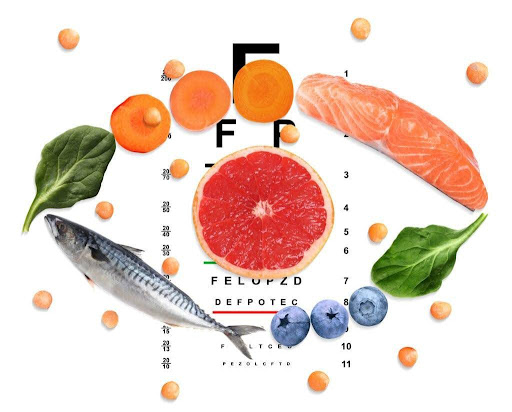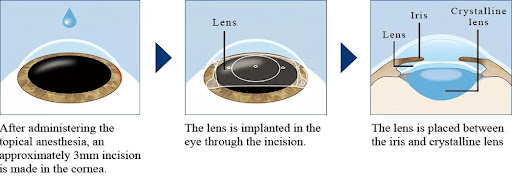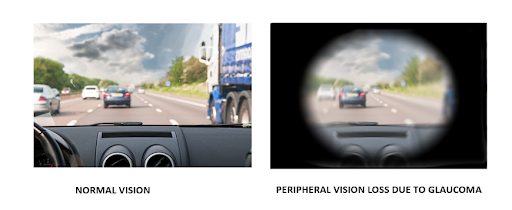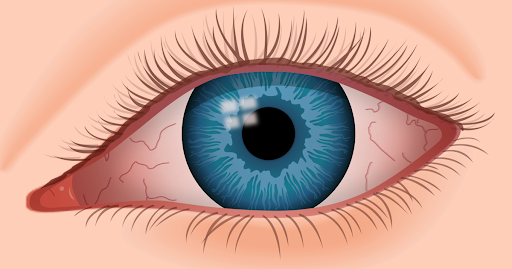An ocular concussion, or eye concussion, is a medical condition when the eye sustains a traumatic injury or impact, typically due to an external force or blow to the head or eye area. This type of injury can cause significant damage to the eye and its surrounding structures, including the optic nerve, retina, and other vital components responsible for vision.
Ocular concussion is a subset of concussions that specifically affect the eye, and they can vary in severity, ranging from mild to severe. When an ocular concussion occurs, it can lead to a range of symptoms and visual disturbances. That is why it is imperative to consult a trusted eye center such as Eyeonce Eye Clinic; our team of skilled eye doctors headed by Dr. Paik Don Won and Dr. Jung Sae Rom specializes in addressing ocular concussions and ensuring your eyesight is in the best hands.
The Importance of Proper Nutrition to Vision
Proper nutrition plays a pivotal role in maintaining optimal vision for several compelling reasons. The intricate network of tissues and cells that constitute our eyes demands a consistent supply of essential nutrients to function at its best. Here is why prioritizing proper nutrition is crucial for preserving good vision.
- Nutrient Support for Eye Structures – The various components of the eye—such as the cornea, retina, and lens—rely on specific nutrients like vitamins A, C, and E, along with minerals like zinc, to maintain their structural integrity.
- Antioxidant Defense Against Damage – The eyes are particularly vulnerable to oxidative stress caused by free radicals, which can lead to cellular damage. Antioxidants, found in abundance in fruits and vegetables, act as a defense mechanism, neutralizing these free radicals and protecting the eyes from harm.
- Prevention of Age-Related Conditions – Conditions like macular degeneration and cataracts, which often manifest with age, can be mitigated through a diet rich in antioxidants, omega-3 fatty acids, and other key nutrients. These components contribute to reducing the risk and progression of these age-related vision issues.
- Maintenance of Healthy Blood Vessels – Adequate nutrition supports the health of blood vessels in the eyes. Nutrients like lutein and zeaxanthin, commonly found in leafy green, contribute to good blood vessel health, ensuring proper circulation to the eyes.
- Prevention of Night Blindness and Dry Eyes – Vitamin A, obtained from sources like carrots, is essential for preventing night blindness and maintaining the integrity of the eye’s surface, preventing conditions like dry eyes.
- Overall Eye Function and Adaptability – Omega-3 fatty acids, primarily found in fatty fish, contribute to the overall functioning of the eyes and support their adaptability to different lighting conditions. This is crucial for activities like night vision and adjusting to varying levels of brightness.
- Reduction of Inflammation – Chronic inflammation can negatively impact eye health. Nutrients like omega-3 help in reducing inflammation, providing a protective shield against inflammatory conditions that may affect the eyes.
In essence, proper nutrition acts as a proactive measure, fortifying the eyes against potential threats and promoting long-term visual well-being. At Eyeonce, our eye care professionals always emphasize that a diet rich in lutein, zeaxanthin, and other antioxidants can provide the necessary protection against the harmful effects of free radicals, ultraviolet rays, and other environmental stressors.
Key Steps to A Healthier Vision
Improving your vision through a healthier diet involves adopting various practices that contribute to overall eye health. Here are several key processes to consider:
- Consultation with an Eye Care Professional – Before making any significant changes to your diet, it is crucial to consult with an eye care professional such as those from Eyeonce Eye Clinic. They can assess your current eye health, identify specific needs, and provide tailored recommendations.
- Nutrient Assessment – Evaluate your current diet to identify any nutrient deficiencies that may impact your health. Key nutrients for vision include vitamins A, C, E, zinc, and omega-3 fatty acids.
- Incorporate Antioxidant-Rich foods – Antioxidants play a crucial role in protecting the eyes from oxidative stress. Include fruits and vegetables rich in antioxidants, such as berries, leafy green, carrots, and bell peppers.
- Increase Omega-3 Fatty Acids – Omega-3 fatty acids, found in fish, flaxseeds, chia seeds, and walnuts, contribute to eye health. They help maintain the integrity of the retina and support overall eye function.
- Maintain a Balanced Diet – Ensure a well-balanced diet that includes a variety of food groups. A diverse and balanced diet provides a broad spectrum of nutrients essential for overall health, including eye health.
- Stay hydrated – Proper hydration is essential for overall health, including eye health. Drinking an adequate amount of water helps maintain the fluid balance in the eyes and prevents dryness.
- Limit Processed and Sugary Foods – Excessive consumption of processed and sugary foods may contribute to inflammation, which can negatively impact eye health. Limiting these foods can be beneficial for overall well-being.
- Manage Blood Sugar Levels – High blood sugar levels can lead to conditions like diabetic retinopathy, which affects vision. Maintaining stable blood sugar levels through a balanced diet is important for preventing such complications.
- Regular Eye Exams – Schedule regular eye exams to monitor your eye health and detect any issues early on. These exams can help you and your eye care professional track changes and adjust your diet and lifestyle accordingly.
By breaking down the initiation of a vision-friendly diet into these processes, individuals can approach the transition systematically, making it more manageable and sustainable for long-term eye health.
10 Foods for Excellent Eye Nutrition
Here are ten foods that are excellent for eye health:
- Carrots – Rich in beta-carotene, which is converted into vitamin A, essential for maintaining the health of the retina.
- Sweet Potatoes – Loaded with beta-carotene, contributing to the production of vitamin A and promoting good vision.
- Spinach – Contains lutein and zeaxanthin, antioxidants that help prevent age-related macular degeneration (AMD) and cataracts.
- Eggs – A good source of lutein and zeaxanthin, important for maintaining healthy eyes.
- Broccoli – Contains lutein, zeaxanthin, and vitamin C, contributing to maintaining healthy eyes.
- Blueberries – Packed with antioxidants that may protect the eyes from oxidative stress and reduce the risk of cataracts and AMD.
- Citrus Fruits (Oranges, Grapefruits) – High in vitamin C, an antioxidant that supports eye health and may lower the risk of cataracts and AMD.
- Almonds – Rich in vitamin E, associated with a lower risk of AMD, and provides healthy fats beneficial for eye health.
- Turkey – A good source of zinc, an essential mineral for maintaining the health of the retina,
- Salmon – High in omega-3 fatty acids, which support overall eye health and help prevent dry eyes.
Remember to incorporate a variety of these nutrient-rich foods into your diet for comprehensive eye nutrition. If you have specific concerns about your eye health, consider scheduling a consultation with Eyeonce Eye Clinic for personalized advice and care.
Frequently Asked Questions (FAQs)
A balanced diet is crucial for eye health. Nutrients like vitamin A, lutein, zeaxanthin, omega-3 fatty acids, and antioxidants support vision and help prevent conditions like cataracts and macular degeneration.
Yes. Foods rich in nutrients like carrots (beta-carotene), spinach (lutein, zeaxanthin), and salmon (omega-3 fatty acids) can contribute to better eye health and support vision.
Omega-3 fatty acids in fish like salmon help prevent dry eyes and support overall eye health by reducing inflammation.
Conclusion
Prioritizing a vision-friendly diet can significantly contribute to maintaining optimal eye health and preventing common issues such as cataracts and macular degeneration. Incorporating nutrient-rich foods like carrots, spinach, salmon, and almonds into your meals provides essential vitamins and antioxidants crucial for supporting and preserving your vision. For guidance and expert guidance, schedule a consultation at Eyeonce Eye Clinic today!



